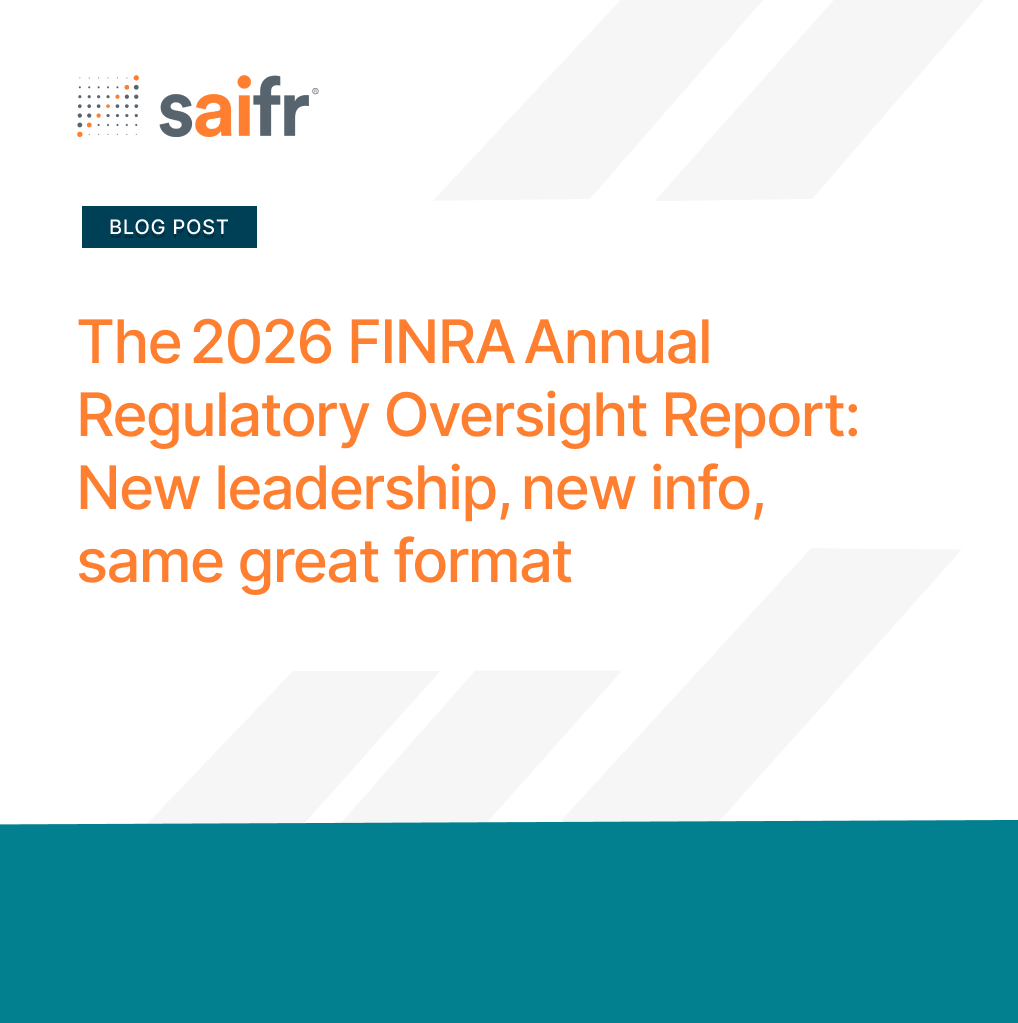As 2024 approaches, it’s a good time to take stock of the old year and look ahead to the new. Back in April, I wrote a blog about trends to watch in the regulation of broker-dealers and investment advisors in 2023. As such, let’s revisit these points, and take a look at what 2024 may likely bring.
New Marketing Rule: guidance and enforcement actions
The new SEC’s Marketing Rule compliance period started in November 2022, and I expected in our previous post that we would continue to see guidance and potentially enforcement actions by the SEC. This has panned out: in June, the SEC published a Risk Alert providing updated areas of emphasis for review concerning the new Marketing Rule. And in September, the SEC announced charges against nine investment advisers for advertising hypothetical performance to the general public without implementing policies and procedures required by the new Marketing Rule. All nine firms agreed to settle the SEC’s charges and to pay $850,000 in combined penalties.
Additionally, in the 2024 examination priorities, published by the Division of Examinations in October, the SEC announced a particular examination focus on whether advisers have, among other things, adopted and implemented reasonably designed, written policies and procedures to prevent violations rules under the Advisers Act, including the new Marketing Rule. It’s not difficult to project that additional enforcement actions in 2024 are likely.
All things crypto
Earlier this year, the SEC proposed rules requiring an investment adviser with custody of client crypto assets to ensure such assets are maintained with a qualified custodian. Given the ramifications (the proposal could effectively prevent many investment advisers from investing client funds in crypto assets), I anticipated pushback, but considered it likely that new regulations would be promulgated regardless. Pushback has indeed followed. This included the expected opposition from the crypto industry, but also from mainstream industry trade groups such as the American Bankers Association and ABA Securities Association. While the SEC has not yet withdrawn the proposed rule, it did reopen the comment period in August. I continue to anticipate that the rule may eventually be implemented regardless, but expect that ongoing opposition may slow the process further or soften the proposed rule to some degree.
On the legislative front, I anticipated that in response to the high-profile collapse of FTX and other prominent crypto scandals, legislators were likely to propose some kind of comprehensive crypto legislation; possibly revisiting the Lummis-Gillibrand bill from 2022. As anticipated, Senators Cynthia Lummis and Kirsten Gillibrand reintroduced a revised version of the bill in July, with hearings held by the committee on Banking, Housing, and Urban Affairs in October. Whether the revised Lummis-Gillibrand bill makes any progress or stalls out in committee (as did the previous version) remains to be seen. Nevertheless, given the ongoing issue of high-profile crypto scandals and litigation (including the trial of Sam Bankman-Fried and the record settlement against Binance, as well as the ruling in the Ripple case), I continue to anticipate some kind of legislative motion on crypto regulation in 2024.
AI investment advice
2023 has been a record year for artificial intelligence-based language models such as GPT4, with increases in power and capability seemingly occurring on a daily basis. Given the rapid advances in this technology, I anticipated that such AI-based models would be the logical next step for the “robo-adviser” space, but that given concerns over inadvertently fabricated information (popularly known as “hallucinations”), it could be several years before AI-based tools are introduced to mainstream robo-advisers.
Download the research | AI insights survey: Adopters, skeptics, and why it matters.
As things stand, this remains the status quo: AI-powered robo-advisers are anticipated to break through in the near future, but as of 2023, have not yet done so (at least to mainstream audiences). Potential liability over conflicts of interest, deception, discrimination, and other matters continue to raise concerns. In July, the SEC proposed new rules requiring broker-dealers and investment advisers to address conflicts of interest associated with their use of predictive data analytics and similar technologies. Given these and other ongoing concerns, I expect that in 2024, the majority of robo-advisers targeted at mainstream audiences will likely continue to use older technologies, but that the first generation of AI-powered robo-advisers may make their debut on a smaller scale.
ESG
Environmental, social, and governance (ESG) factors have risen in importance for investors in recent years, and regulators are responding by proposing new requirements to make ESG disclosures more consistent and comparable. In 2022, the SEC proposed several rules enhancing disclosure requirements around climate- and ESG-related investment products. Given the controversy surrounding these topics, I considered it unclear whether any of these rules would be finalized in 2023.
As matters stand, the proposed rules do not appear to have significantly progressed since their proposal. Given that the SEC did not include ESG factors in their 2024 examination priorities, it’s possible that no significant climate- or ESG-related regulation will be finalized until 2025.
What to look forward to in 2024
The issue of how to classify cryptographic assets (as securities or commodities) remains in limbo, as well as the matter of which agency will regulate them. As discussed above, a number of high profile cases and scandals (including Ripple) are likely to provide an ongoing impetus for cryptographic asset regulation, potentially including the revived Lummis-Gillibrand bill. In the absence of such regulation, continued enforcement actions, many with accompanying consent orders, will likely continue to shape the market. Given the ongoing ambiguity and risk of enforcement actions, I anticipate that much, if not most mainstream crypto activity may be pushed offshore in the near future.
In the absence of caselaw or guidance on the matter, regulated entities, such as broker-dealers and investment advisers, might want to consider erring on the side of caution and assume that US securities law apply. In particular, regulated entities should likely assume that the Securities Act of 1933 and the Securities Exchange Act of 1934 will apply to most crypto assets—and as such, that the SEC Marketing Rule (discussed above) and FINRA Rule 2210 also apply.
Of course, all of this can change in an instant. On-point appellate caselaw in favor of the SEC’s stance on crypto (or firmly rejecting it) may change the crypto legal landscape overnight. I look forward to revisiting these matters in the near future, and evaluating what I got right and what I got wrong.
For more on the current state of AI, check out our ebook, AI insights survey: Adopters, skeptics, and why it matters.
The opinions provided are those of the author and not necessarily those of Fidelity Investments or its affiliates. Fidelity does not assume any duty to update any of the information. Fidelity and any other third parties are independent entities and not affiliated. Mentioning them does not suggest a recommendation or endorsement by Fidelity.
1123671.1.0






-1.png)